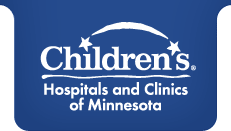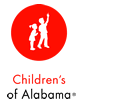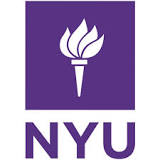Phase I/II Study of MEK162 for Children With Ras/Raf Pathway Activated Tumors
| Status: | Recruiting |
|---|---|
| Conditions: | Skin and Soft Tissue Infections, Brain Cancer, Brain Cancer |
| Therapuetic Areas: | Dermatology / Plastic Surgery, Oncology |
| Healthy: | No |
| Age Range: | 1 - 18 |
| Updated: | 3/22/2019 |
| Start Date: | April 2016 |
| End Date: | February 2022 |
| Contact: | Nathan Robison |
| Email: | NRobison@chla.usc.edu |
Phase I Study of MEK162 for Children With Progressive or Recurrent Cancer and a Phase II Study for Children With Low-Grade Gliomas and Other Ras/Raf/MAP Pathway Activated Tumors
The main purpose of phase I studies in general is to determine the best dose ("maximum
tolerated dose") of a drug, and to find out the most common side effects. The main purpose of
the phase I component of this study specifically is to determine the best dose of the
experimental drug MEK162 and to find out whether the drug is safe in children and adolescents
with tumors that have grown or come back despite standard therapy.
Another purpose of this study is to measure the concentration of drug in the blood to help
understand how much drug gets into the body and how quickly the drug is removed from the
body. Another purpose of this study is to determine whether MEK162 turns off the Ras/Raf/MAP
pathway as expected by measuring this pathway in blood cells. Finally, in this study, the
investigators hope to start finding out whether or not MEK162 causes different types of
tumors in children to shrink or stop growing.
The main purpose of the phase II component of the study is to determine whether MEK162 causes
specific types of tumors in children and adolescents to shrink or stop growing. These
specific types of tumors include low-grade gliomas, tumors in patients with a genetic
condition called neurofibromatosis type 1, and other tumors thought to be caused by abnormal
activation of the Ras/Raf/MEK molecular pathway.
Another purpose of this study is for researchers to learn whether specific abnormalities in
the DNA of tumors can help predict whether tumors will respond to MEK162.
tolerated dose") of a drug, and to find out the most common side effects. The main purpose of
the phase I component of this study specifically is to determine the best dose of the
experimental drug MEK162 and to find out whether the drug is safe in children and adolescents
with tumors that have grown or come back despite standard therapy.
Another purpose of this study is to measure the concentration of drug in the blood to help
understand how much drug gets into the body and how quickly the drug is removed from the
body. Another purpose of this study is to determine whether MEK162 turns off the Ras/Raf/MAP
pathway as expected by measuring this pathway in blood cells. Finally, in this study, the
investigators hope to start finding out whether or not MEK162 causes different types of
tumors in children to shrink or stop growing.
The main purpose of the phase II component of the study is to determine whether MEK162 causes
specific types of tumors in children and adolescents to shrink or stop growing. These
specific types of tumors include low-grade gliomas, tumors in patients with a genetic
condition called neurofibromatosis type 1, and other tumors thought to be caused by abnormal
activation of the Ras/Raf/MEK molecular pathway.
Another purpose of this study is for researchers to learn whether specific abnormalities in
the DNA of tumors can help predict whether tumors will respond to MEK162.
PROTOCOL SUMMARY:
Phase 1: Patients with non-hematologic malignancies that are recurrent, progressive, or
refractory after standard up-front therapy receiving MEK162 will define the maximum tolerated
dose (MTD), dose-limiting toxicities (DLT), and toxicity profile.
Phase 2: Patients with recurrent or progressive tumors signaling through the ras/raf pathway
after standard up-front therapy will be treated in three strata to define the activity of
MEK162.
Stratum 1: Pediatric patients with recurrent or progressive low-grade glioma (LGG)
characterized by a BRAF truncated fusion (KIAA1549 and similar translocations).
Stratum 2: Pediatric patients with neurofibromatosis type 1 (NF1) and recurrent or
progressive LGG.
Stratum 3: Pediatric patients with recurrent or progressive tumors thought to involve the
ras/raf/MAP pathway but not included in strata 1 or 2. This includes any LGG not included in
strata 1 or 2 (i.e., any LGG without a BRAF truncated fusion in a patient without NF1), any
tumor other than LGG in a patient with NF1, and any other tumor with a known activating BRAF,
NRAS or KRAS mutation.
Target validation phase: Patient enrolled on the phase 2 component (any stratum) for whom
tumor biopsy or resection is clinically indicated. Patients will receive MEK162 for 7 to 21
days prior to their surgery. Samples will be analyzed for concentration of drug and target
inhibition.
Length of therapy:
Protocol treatment will last approximately 48 weeks from the start of MEK162 in the absence
of significant toxicity. Treatment will be administered based on the dose escalation schema
for phase 1. Patients in the phase 2 component of the trial will also receive a planned 48
weeks of therapy. Those undergoing planned tumor resection based on clinical criteria will be
eligible to receive 7-21 days of treatment with MEK162 prior to the surgical procedure.
Imaging to assess response will be obtained at the end of cycle 1 (+/- 1 week), at the end of
cycle 3 (+/- 2 weeks) and after every three cycles thereafter (+/- 2 weeks). A cycle will
consist of 28 days (+/- 3 days) and MEK162 will be given continuously. Patients deriving
benefit may continue therapy beyond study completion but all protocol specific evaluations
(other than survival or progression) will conclude after one year. All patients will be
followed with progression as the end point.
Phase 1: Patients with non-hematologic malignancies that are recurrent, progressive, or
refractory after standard up-front therapy receiving MEK162 will define the maximum tolerated
dose (MTD), dose-limiting toxicities (DLT), and toxicity profile.
Phase 2: Patients with recurrent or progressive tumors signaling through the ras/raf pathway
after standard up-front therapy will be treated in three strata to define the activity of
MEK162.
Stratum 1: Pediatric patients with recurrent or progressive low-grade glioma (LGG)
characterized by a BRAF truncated fusion (KIAA1549 and similar translocations).
Stratum 2: Pediatric patients with neurofibromatosis type 1 (NF1) and recurrent or
progressive LGG.
Stratum 3: Pediatric patients with recurrent or progressive tumors thought to involve the
ras/raf/MAP pathway but not included in strata 1 or 2. This includes any LGG not included in
strata 1 or 2 (i.e., any LGG without a BRAF truncated fusion in a patient without NF1), any
tumor other than LGG in a patient with NF1, and any other tumor with a known activating BRAF,
NRAS or KRAS mutation.
Target validation phase: Patient enrolled on the phase 2 component (any stratum) for whom
tumor biopsy or resection is clinically indicated. Patients will receive MEK162 for 7 to 21
days prior to their surgery. Samples will be analyzed for concentration of drug and target
inhibition.
Length of therapy:
Protocol treatment will last approximately 48 weeks from the start of MEK162 in the absence
of significant toxicity. Treatment will be administered based on the dose escalation schema
for phase 1. Patients in the phase 2 component of the trial will also receive a planned 48
weeks of therapy. Those undergoing planned tumor resection based on clinical criteria will be
eligible to receive 7-21 days of treatment with MEK162 prior to the surgical procedure.
Imaging to assess response will be obtained at the end of cycle 1 (+/- 1 week), at the end of
cycle 3 (+/- 2 weeks) and after every three cycles thereafter (+/- 2 weeks). A cycle will
consist of 28 days (+/- 3 days) and MEK162 will be given continuously. Patients deriving
benefit may continue therapy beyond study completion but all protocol specific evaluations
(other than survival or progression) will conclude after one year. All patients will be
followed with progression as the end point.
Patients with recurrent or progressive disease, as defined in the following three strata
below, will be eligible. For eligibility determination, tumor imaging from at least two
time-points must be available to document radiographic progression or recurrence. Patients
with non-progressive refractory tumors will not be eligible.
- Stratum 1: patients with LGG with a BRAF truncated fusion that is measurable in at
least two dimensions on imaging.
- Stratum 2: patients with NF1 and LGG that is measurable in at least two dimensions on
imaging.
- Stratum 3: Pediatric patients with a recurrent or progressive tumor thought to involve
the Ras/Raf/ERK pathway but not included in strata 1 or 2 that is measurable in at
least two dimensions on imaging. This includes any LGG not included in strata 1 or 2
(i.e., any LGG without a BRAF truncated fusion in a patient without NF1), any tumor
other than LGG in a patient with NF1, and any other tumor with a documented activating
BRAF, NRAS, or KRAS mutation.
- Stratum 4 (surgical arm, target validation): Patients who meet criteria for stratum 1,
2, or 3 for whom tumor biopsy and/or resection is clinically indicated.
- Tumor tissue for correlative studies must be available for all patients except those
with NF1 and LGG (stratum 2) or any patient with optic pathway glioma (stratum 2 or
3), for whom tumor tissue is optional.
- Patients must have received at least one prior chemotherapy or radiation regimen prior
to progression.
- At the time of enrollment, at least 6 weeks must have elapsed since the last dose of
any nitrosourea, and the longer of 2 weeks or 3 half-lives must have elapsed since the
last dose of any other tumor-directed medication. or biologic therapy.
- At least 3 months must have elapsed since the last dose of irradiation to the target
tumor(s) at the time of enrollment.
- Patients must be >1 year and <18 years old.
- Performance Score using the Karnofsky Performance Scale (patients > 12 years old) or
Lansky Play - Performance Scale (patients ≤ 12 years old) must be ≥ 60 assessed within
two weeks prior to enrollment.
- Participants must have normal organ and marrow function as defined below within two
weeks prior to enrollment:
- Absolute neutrophil count > 1,000/mcL
- Platelets > 75,000/mcL and > 7 days since last platelet transfusion. Hemoglobin >
9 gm/dL and > 7 days since last red blood cell transfusion
- Not refractory to red cell or platelet transfusions
- Hepatic: Total bilirubin ≤ 1.5 times the upper limit of normal; SGPT (ALT) and
SGOT (AST) < 3 times the institutional upper limit of normal
- Renal: Serum creatinine which is less than 1.5 time the upper limit of
institutional normal for age or GFR > 70 ml/min/1.73m2
- QTc interval < 450ms
- Left ventricular ejection fraction (LVEF) > 50% as determined by an
echocardiogram
- Female patients of childbearing potential must have negative serum or urine pregnancy
test within 72 hours of the first dose of MEK162. Patient must not be pregnant or
breast-feeding. Patients of childbearing or child-fathering potential must be willing
to use a medically acceptable form of birth control, which includes abstinence, while
being treated on this study and for 30 days following cessation of treatment.
- Patient must be able to take oral/enteral medication.
- Patient, parent, or legal guardian must be able to understand and willing to provide
informed consent.
- Patients must have recovered from the effects of prior therapy.
Exclusion Criteria
Patients with any of the following characteristics will not be eligible:
- Patients for whom other curative or established standard-of-care therapeutic options
with acceptable morbidity exist.
- Patients with any significant medical illnesses that in the investigator's opinion
cannot be adequately controlled with appropriate therapy or would compromise the
patient's ability to tolerate this therapy.
- History of Gilbert's syndrome
- Patients receiving any other anticancer or experimental drug therapy.
- Use of hematopoietic growth factors within 2 weeks prior to initiation of therapy.
- Any other investigational agents within 2 weeks or ≤ 3 half-lives (whichever is
longer) before start of study therapy.
- Patients who have undergone surgery ≤ 3 weeks or who have not recovered from side
effects of this procedure prior to receiving study drug.
- Uncontrolled intercurrent illness including, but not limited to, ongoing or active
infection, symptomatic congestive heart failure, unstable angina pectoris, cardiac
arrhythmia, impaired gastrointestinal function, or psychiatric illness/social
situations that would limit compliance with study requirements.
- History or current evidence of retinal vein occlusion (RVO) or predisposing factors to
RVO (e.g. uncontrolled glaucoma or ocular hypertension, history of hyperviscosity or
hypercoagulability syndromes).
- History of retinal degenerative disease
- Prior therapy with a MEK inhibitor
- Impairment of gastrointestinal function (e.g., active ulcerative disease, uncontrolled
nausea, vomiting, diarrhea, malabsorption syndrome)
- Patients who have a neuromuscular disorder that is associated with elevated CK (e.g.,
inflammatory myopathies, muscular dystrophy, amyotrophic lateral sclerosis, spinal
muscular atrophy).
- Patients with uncontrolled hypertension
Inclusion of Women, Minorities, and Other Underrepresented Populations This protocol is
open to males and females of all races. See Inclusion Criteria above regarding specific
eligibility requirements for female and male patients of child-bearing or child-fathering
potential, respectively.
We found this trial at
15
sites
Children's Hospital of Alabama Children
Click here to add this to my saved trials
Johns Hopkins University The Johns Hopkins University opened in 1876, with the inauguration of its...
Click here to add this to my saved trials
4650 Sunset Blvd
Los Angeles, California 90027
Los Angeles, California 90027
(323) 660-2450

Phone: 323-361-7673
Childrens Hospital Los Angeles Children's Hospital Los Angeles is a 501(c)(3) nonprofit hospital for pediatric...
Click here to add this to my saved trials
3181 Southwest Sam Jackson Park Road
Portland, Oregon 97239
Portland, Oregon 97239
503 494-8311

Oregon Health and Science University In 1887, the inaugural class of the University of Oregon...
Click here to add this to my saved trials
Children's Healthcare of Atlanta Whether treating a toddler in an emergency or supporting a teen...
Click here to add this to my saved trials
Children's Hospital Colorado At Children's Hospital Colorado, we see more, treat more and heal more...
Click here to add this to my saved trials
Dana-Farber Cancer Institute Since it’s founding in 1947, Dana-Farber has been committed to providing adults...
Click here to add this to my saved trials
Click here to add this to my saved trials
Texas Children's Hospital Texas Children's Hospital, located in Houston, Texas, is a not-for-profit organization whose...
Click here to add this to my saved trials
Click here to add this to my saved trials
2525 Chicago Ave
Minneapolis, Minnesota 55404
Minneapolis, Minnesota 55404
(612) 813-6000

Children's Hospitals and Clinics of Minnesota - Minneapolis Children's Hospitals and Clinics of Minnesota is...
Click here to add this to my saved trials
New York University More than 175 years ago, Albert Gallatin, the distinguished statesman who served...
Click here to add this to my saved trials
660 S Euclid Ave
Saint Louis, Missouri 63110
Saint Louis, Missouri 63110
(314) 362-5000

Washington University School of Medicine Washington University Physicians is the clinical practice of the School...
Click here to add this to my saved trials
Seattle Children's Hospital Seattle Children’s Hospital specializes in meeting the unique physical, emotional and developmental...
Click here to add this to my saved trials
Click here to add this to my saved trials







